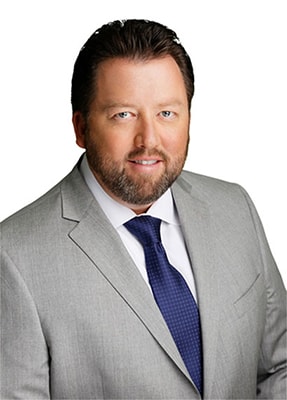Many factors determine fault in a car accident. Usually, an insurance adjuster will come to one determination of fault by looking at the evidence from the outside. However, drivers can appeal an insurance adjuster’s decision if they believe the decision is wrong.
If you were in a car accident and need to determine fault, reach out to a car accident lawyer to help you gather the requisite evidence. To get started, read through this article to learn how to determine fault and how to prove it in your situation.
Fault determines who will recover compensation for injuries and other losses after a car accident. It also determines how much each person could potentially recover.
Every State has different rules regarding how fault affects a car accident settlement.
The most common system States apply is the modified comparative fault rule. Under this rule, a person can recover damages if they are less than 50 percent or 51 percent at fault for the accident, depending on the specific rules of the State.
In a typical car accident, insurance adjusters from one or both insurance companies with clients in the crash usually gather witness statements, photos or videos of the accident scene, and accident restaging experts to determine what happened.
They might use:
Insurance adjusters assign a percentage of fault to each driver involved in a case based on this evidence. They then usually make an offer to the injured party or parties. It is at this point that an injured party can reject the offer or appeal the insurance adjuster’s determination regarding their fault in the crash.
There are some situations in which the location of the damage to the vehicles involved makes it obvious who was at fault. For example, if your car was rear-ended, you have damage to the back of your car, and the other driver has damage to the front of their car. Rear-end collisions are usually the fault of the rear driver, so if this is the case in your accident, you can likely use the location of the damage to prove that you were not at fault.
In another example, say you were driving through a parking lot when someone backed into you. In this case, if the damage is in the middle of your car and the rear of the other driver’s car, the other driver is likely at fault since they backed into you and weren’t paying attention to what was behind them. However, if the damage is to the front of your car, it may be harder to prove that the other driver was fully at fault, as you may have had time to stop before the collision occurred.
The location of the damage is not always a clear indicator of fault. If you were turning left at a stoplight and another car ran into you, causing damage to the left side of your car, fault is harder to determine. Was one of the drivers running a red light? Who had the right of way in this situation? The answer is not as clear in such a situation.
After a car accident that wasn’t your fault, preserve any evidence that someone else’s negligence may have caused.

In order to do this:
Proving fault by location of damage could be very helpful in your car accident claim. If you were recently in a car accident that was caused by someone else’s negligence, you should contact a car accident lawyer to help you prove fault. Car accident attorneys have worked for years with claims like yours and know exactly what evidence they need to prove fault and recover damages.
Benson & Bingham Accident Injury Lawyers
Summerlin Location
11441 Allerton Park Dr #100
Las Vegas, NV 89135
Phone: 702-684-6900
Fax: 702-382-9798
Downtown Location
626 S 10th St
Las Vegas, NV 89101
Phone: 702-382-9797
Fax: 702-382-9798
Henderson Location
9230 S Eastern Ave #155
Las Vegas, NV 89123
Phone: 702-463-2900
Fax: 702-382-9798
Reno Location
1320 E Plumb Lane Ste A
Reno, NV 89502
Phone: 775-600-6000
Fax: 702-382-9798
Joseph L. Benson II, and Ben J. Bingham, Personal Injury Attorneys
Motorcyclists are common on the roads, but often get a bad reputation. People see motorcycle…
Workplace injuries can result in large medical bills, loss of wages, and more. In most…
Injuries that happen at a workplace are covered under a specific workers’ compensation insurance. This…
When you are harmed in an accident by another party, whether through negligence or intention,…
If you’ve suffered an injury and are considering a personal injury case, you must hire…
When you are injured and seeking a personal injury claim, you may be concerned about…